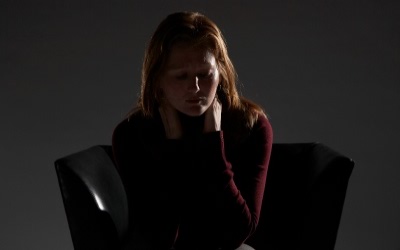Understanding Depression and its Symptoms
Depression is a term which gets attributed to a number of mild emotional episodes, such as when we’re feeling a bit down about life in general. However, for those suffering with depression, this common mistake can undermine genuine conditions which are debilitating and difficult to live with. If you’re feeling low a lot of the time, struggling to find the motivation to get on with everyday tasks, feeling the need to withdraw from people, and feel sad regularly, it could be a sign that you have depression, in the medical sense. In a mild form, depression can just be a bout of low spirits – this won’t stop you leading a regular life, but it makes things harder to do and everything will seem less worthwhile. As a severe condition, major or clinical depression can be life-threatening as it makes you feel suicidal and you quite literally lose the will to live.
There are various types of depression, which are determined by the symptoms you have. Seasonal Affective Disorder, or SAD, is a seasonal depression which is determined by the length of days. Generally, people experience symptoms around autumn and winter, when there is limited good weather and the days are shorter. This often goes away as the days lengthen and get brighter, but you can buy SAD lights which can reduce your symptoms. Postnatal depression generally occurs in women who have just given birth and experience what is sometimes referred to as ‘the baby blues’. This can be a serious problem if it doesn’t pass within the first few days after labour, and it can in some cases occur up to two years after giving birth. Bipolar disorder, also referred to as manic depression, leads people to alternate between periods of mania and extreme depression. Symptoms include bouts of extreme over-ambition and feeling the need to carry out plans and ideas, which is often closely followed by severe depressive periods.
Depression affects around two in three adults at some point in their lives – for most, this is just for a few weeks and is mild. However, depression can be severe enough to require treatment in one in four women, and one in ten men. Some people even experience regular bouts of depression in their lifetime. Many people may not spot the signs of depression, as they can often be attributed to other heath problems. The core symptoms include persistent sadness and a low mood, which may or may not be coupled with feeling teary; they may also have a marked loss of interest in activities they once enjoyed. Other symptoms include a change in appetite, disturbed sleep pattern (both sleeping too much and difficulty in sleeping at all), fatigue, and feelings of worthlessness. They may also have recurring thoughts about death, which may manifest itself as feeling as though life isn’t worth living or that they don’t care if they don’t wake up.
Depression can be caused by a number of factors – some people are more prone to it than others. It may be triggered by a life event, such as a loved one passing away or an illness; it may be a combination of a variety of lifestyle changes, or you may simply have been under immense stress for a long period of time which develops into depression without you noticing. If you think you may be depressed, it’s important you seek advice from your GP as soon as possible in order to determine if this is the case, and the get the right treatment for it.

Comments are closed.